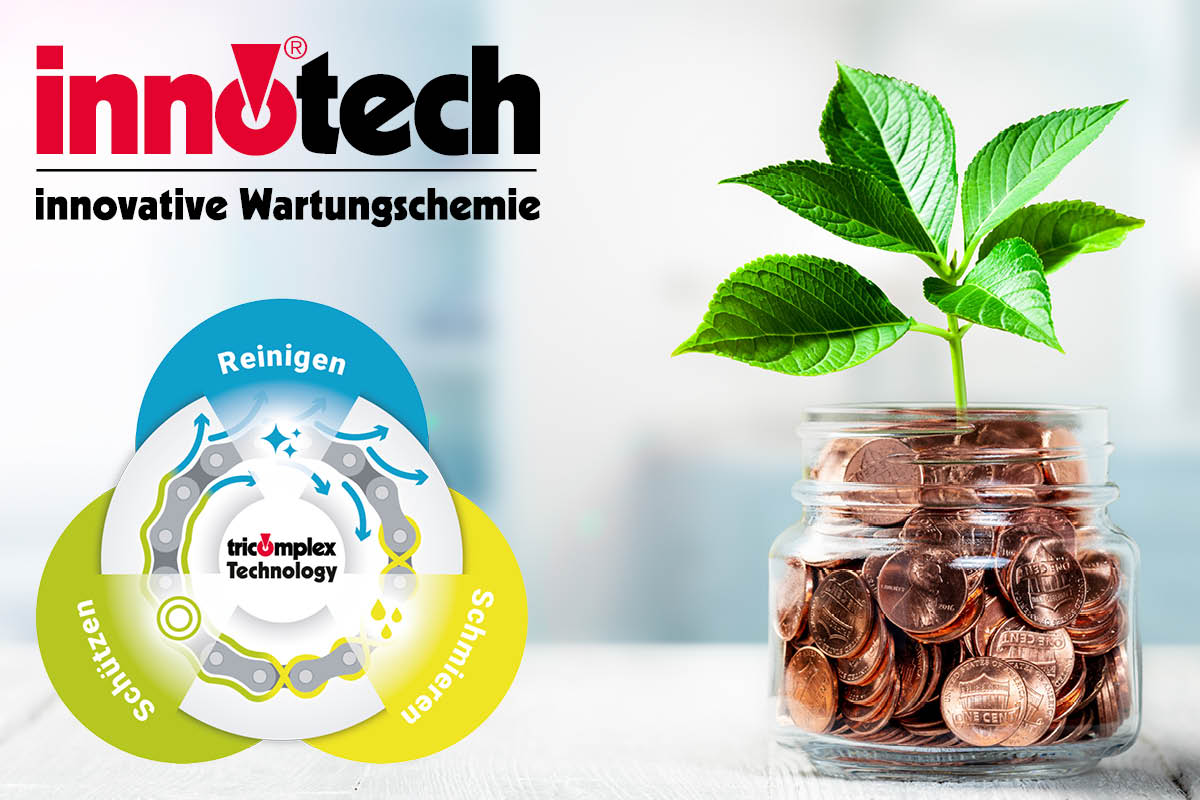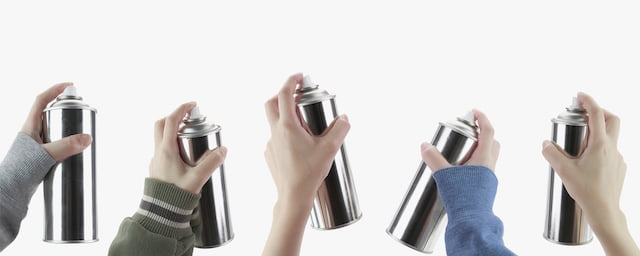Well lubricated - but still showing high level of wear? Let us show you the really economical solution!

|
innotech innovative Wartungschemie |
innotech innovative chemical maintenance products |
|
Reinigen |
Cleaning |
|
Schmieren |
Lubricating |
|
Schützen |
Protecting |
Well lubricated but still showing a high level of wear! Regardless of whether it is a matter of slideways, joints, chains or the like - this phenomenon seems to be omnipresent and impossible to overcome. Whole generations of maintenance technicians experience every day how their efforts to keep machines and technical equipment in working order over the longest possible period of time require a Herculean effort.
A prime example: the chain of a forklift truck
When you look at a forklift chain, you can't help but wonder who is constantly throwing dirt at these chains? It is almost a matter of course that these chains will be covered millimetre-thick with an unappetising layer of dirt. Now the unappetising appearance in itself would not be a problem. After all, the chain is not meant to be eaten or otherwise satisfy aesthetic demands. The question here is purely one of functional efficiency and durability. Now, admittedly these criteria are not particularly dramatic in the case of a forklift truck, but the principle of an incorrectly lubricated chain (or other technical equipment) can easily be transferred to other machinery.
Dust and oil - an aggressive combination
"Those who lubricate well will enjoy smooth operations!" This maxim seems to be the basis for many technicians in daily maintenance work. To put things into context here, it is perfectly fine if the area to be lubricated has been thoroughly cleaned before the lubrication process. In practice, however, this is not always the case. An example is the daily maintenance of a technical system while it is in ongoing operation. In this case, it is not possible to clean the system without interrupting the work process. The result can easily be seen on a well-lubricated but heavily soiled surface. This is particularly bad when oily lubricants are involved. The oily surface acts like a magnet for dust and dirt particles. These stick to the lubricated surface and thus form a kind of emery paste that causes wear with every movement. In the case of chains, this emulsion is fed into the inner bearings; in the case of joints, it is fed into the spaces between them; and in the case of slideways, it is deposited on the surface.
The economic factor
As explained above, lubrication without prior cleaning ultimately results in higher wear and tear. It is obvious that greater wear results in higher costs for the repair of worn or even defective parts and machines. So if you really want to work in a cost-effective way, you will attach great importance to the general maintenance of all technical equipment and parts. This is the only way to ensure that production processes run reliably. And only reliable production processes guarantee that a marketable product can be produced in the right quantity at the right time. And this is how a manufacturing company earns money, rather than by purchasing the cheapest possible maintenance products.
The solution
So what are the possibilities for the practical user?
Chemical maintenance products that clean as well as lubricate are good, and there is still a relatively large range of such products. The fact that the cleaning and lubrication process should be carried out in a single operation is evident from the problems described above.
However, maintenance products that work with synthetic lubricants are a better alternative.
They also clean and lubricate in a single operation. The advantage here, however, is that they produce a dry and yet well-lubricated surface. Such lubricated surfaces remain clean longer, reduce wear and need to be re-lubricated less frequently. Furthermore, synthetic lubricants are subject to virtually no ageing process, which means there is no resinification or coking.
The best solution according to today's technical standards is offered by products such as those provided by innotech Vertriebs GmbH, which work with additive technology. The company’s tricomplex-Technology® fulfils all of these requirements. The products clean, lubricate and protect all in one step. They don’t contain solid particles such as PTFEs, graphite or the like, and smooth the metallic surface. In the case of chains, for example, these features result in an enormous reduction in drive energy. This has been confirmed by measurements taken by a large car manufacturer and in the sugar industry.







